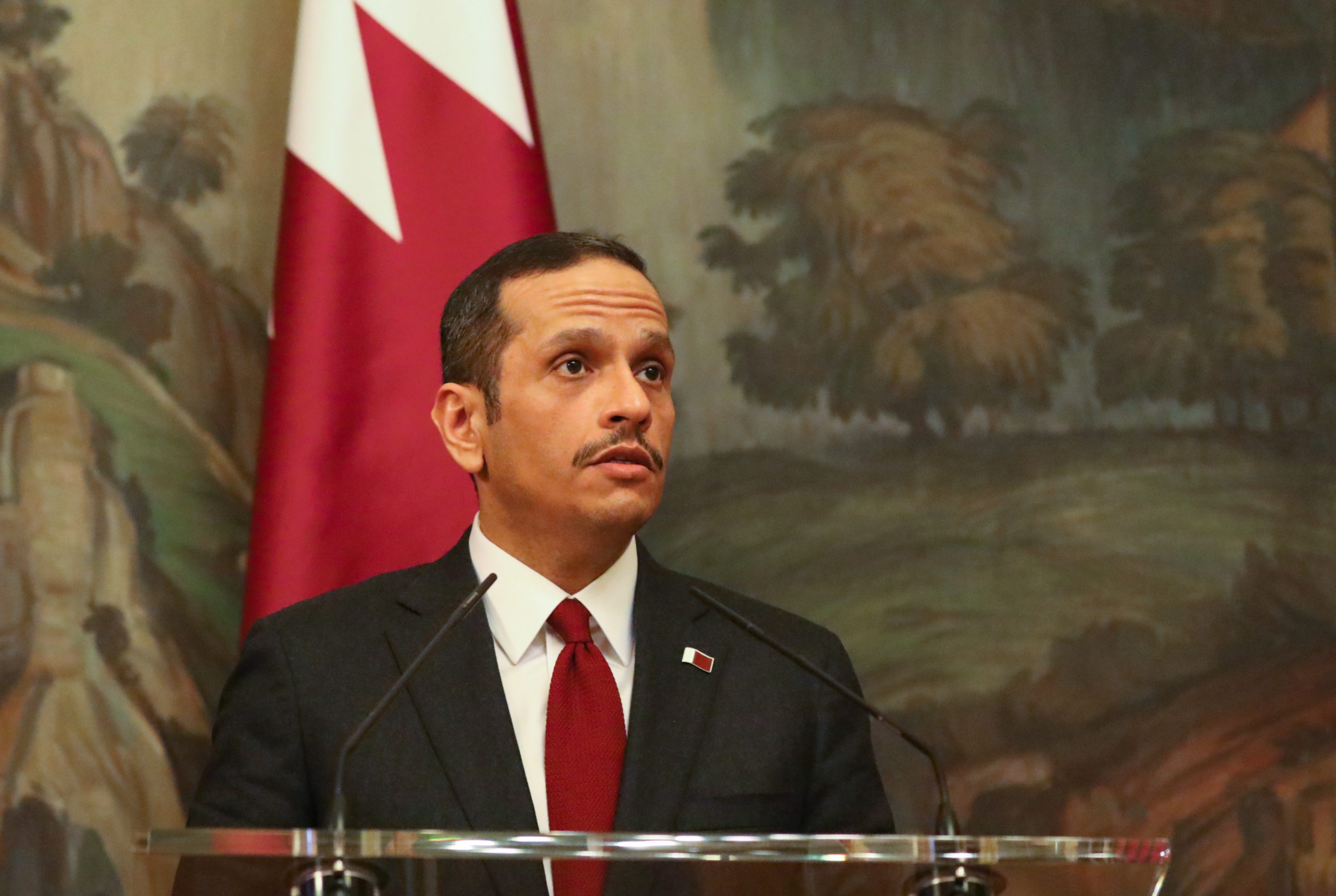In this interview, the top Qatari diplomat discussed the 2015 nuclear deal and recent protests in Iran.
Qatar’s Foreign Minister Mohammed bin Abdulrahman Al Thani said that Doha believes in the importance of returning to the 2015 nuclear deal as it “will contribute to the stability of the region.”
This came in an interview with Bloomberg published on Wednesday, where the minister also emphasised the need to find common ground to resolve the issue over the major sticking points in order to finalise the agreement, indicating that his country seeks to play an important role in the negotiations by maintaining a communication portal between Iran and the United States.
The Qatari diplomat also asserted that the involved parties have both purpose and positive motives to reach a deal.
Sheikh Mohammed stressed that a failure to secure a deal may lead to a rise of instability in the region, noting that Doha does no desire such outcome.
Regarding the recent protests that have taken over the streets of Iran due to the death of a 22-year-old woman, the Qatari official said that his country rejects the use of force against the protesters, stressing that Qatar does not interfere in the internal affairs of nations.
He further noted that Doha enjoys good relations with Tehran as a neighbouring country and wants to use this relationship for the interest and stability of the region.
Mahsa Amini died in Tehran on Friday after suffering from a stroke and a heart attack while in the custody of Iran’s so-called morality police, on charges of failing to ‘adhere’ to the official veiling regulations in Iran, Al Jazeera reported.
A video released on Wednesday showed footage of protests erupting in various Iranian cities since Amini’s death.
This comes as Qatar’s Amir Sheikh Tamim bin Hamad Al Thani visits New York for the United Nations General Assembly (UNGA), where he also delivered a speech on Tuesday addressing a plethora of topics.
Alongside Sheikh Tamim, Sheikh Mohammed bin Abdulrahman Al Thani and Assistant Foreign Minister Lolwah Al Khater are also in attendance.
While in New York and on the sidelines of the UNGA, Sheikh Mohammed bin Abdulrahman met on Monday his Iranian counterpart Hossein Amirabdollahian to review bilateral ties shared between the two sides and the latest developments in negotiations to restore the landmark nuclear accord.
Qatar’s stance on nuclear deal
Qatar’s Amir Sheikh Tamim bin Hamad Al Thani recently stressed that while no one officially approached Doha for mediation, it maintained a communication portal between Iran and the US.
“Of course, there are differences, everyone has some, but we must sit down and talk about them, directly between us and the Iranians, without outside interference,” Sheikh Tamim said in a major new interview with French outlet Le Point, the first such press appearance since becoming leader in 2013.
In June, Qatar hosted a round of two-day indirect talks between Tehran and Washington in an effort to salvage the 2015 nuclear deal, formally known as the Joint Comprehensive Plan of Action (JCPOA).
“We are talking with our US allies, and we are talking with the Iranians, because Iran is our neighbour,” the Qatari leader said, later adding that “it is in our duty and interest to do everything to bring the parties together and to encourage them in negotiating a peaceful settlement.”
As a heavyweight mediator, Doha has long pushed the need for dialogue in order to achieve peace across the world. Over the past years, the Gulf country has served as a platform for communication between conflicting sides, with instances including Chad and Afghanistan amongst other countries.
“Our foreign policy in Qatar aims to bring different points of view together, to help all parties who need it, and to play a role of facilitator, in the region and beyond.”
“The world needs dialogue to solve its problems,” said the leader.
“We do not limit ourselves in the choice of our interlocutors, as long as they believe in peaceful coexistence. But we are not willing to talk to those who oppose it.”
Commenting on Qatar and Iran’s ties, Sheikh Tamim said the Islamic Republic remains an important country that shares a “historical relationship” with Doha, as well as a shared gas field.
In the interview, the amir renewed the importance of the Gulf Cooperation Council (GCC) holding dialogue with Tehran to settle their differences.
“We encourage all GCC member states and Iran to talk to each other,” the Sheikh Tamim added.
In late May, Qatar’s Foreign Minister Sheikh Mohammed bin Abdulrahman Al Thani said that reaching a common ground with regards to the nuclear deal between Iran and relevant world powers will aid in boosting stability in the Gulf region and help oil markets.
According to the country’s ministry of foreign affairs, the top diplomat said “pumping additional quantities of Iranian oil to the markets will help stabilise crude prices and reduce inflation.”







